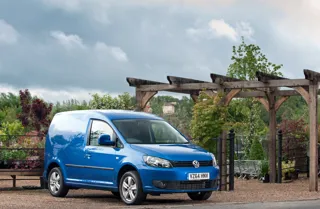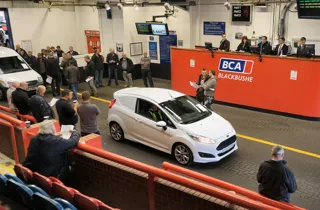By Chris Sykes, national sales manager Moneybarn
Light Commercial Vehicles (LCVs) have often been left playing catch-up with cars when it comes to their features.
Driver side airbags were an uncommon standard feature only a decade ago and anti-lock braking systems took a long time to enter the LCV market.
However, with over 4 million vans on the UK roads, Moneybarn explains how safety, security and innovative technology in LCVs are improving year on year and slowly closing the gap between them and cars.
Safety first
When driving a larger vehicle, you may not realise how different elements can play a huge role in performance capabilities. Manufacturers are now creating advanced safety features designed to help protect you.
Driver airbags and ABS (anti-lock braking system) are standard on the vast majority of commercial vehicles; however, blind-spot monitoring and collision prevention technology are options only slowly being introduced into LCVs.
For example, Mercedes-Benz has introduced something called ‘Crosswind Assist’ into their Sprinter.
This feature can detect when the van is in danger of being blown out of the lane by crosswinds, and provides a gentle, course-correcting brake application that quickly intervenes to help stabilise your vehicle.
ESC (electronic stability control) technology on vans is also becoming more sophisticated, with sensors detecting the payload of the vehicle and where in the van the mass is situated. It can then adjust the behaviour of the system when it’s activated.
Keep Secure
It’s claimed a van is broken into and tools stolen every 23 minutes in the UK, so clearly security for LCVs is of high importance.
As a basic requirement, every van should have an alarm and immobiliser fitted as standard and these systems should be Thatcham Category 2 approved.
Electronic GPS trackers can also vastly improve the chances of recovering your vehicle if it’s stolen and along with dash cams have the potential to lower your insurance premiums and accident costs.
Insurers are now accepting dash cam footage when reviewing claims and some now offer discounts to policyholders that have a fully-functioning dash cam installed.
For added protection, Ford has introduced its Ford Pass Connect for Fiesta Vans. This enables you to start your engine and lock or unlock your vehicle from anywhere.
It also automatically locks the doors while the engine is on to keep your vehicle protected.
Back to basics
Many manufacturers are focusing on making it easier for drivers to maintain their van’s upkeep. Well-maintained vehicles preserve resale values, last longer, improve driver safety and reduce the risk of breakdown.
Manufacturers are now introducing productivity and vehicle management systems, with enhanced functions such as vehicle health alerts (e.g. oil change warning or light bulb replacement) and systems which tell you the status of fuel levels and tyre pressure before you get behind the wheel.
You can even have notifications sent directly to your smartphone to alert you to any issues as well as suggest a recommended course of action.
Future features
While AEBS (autonomous emergency braking system) is fitted as a standard in medium and large trucks, it is only just starting to trickle down to the LCV sector.
By monitoring the road using radar and other sensors, they provide warnings to the driver and, when faced with the risk of a collision, automatically apply the brakes which can greatly improve on-the-road safety.
Manufacturers have also started to expand more into the electric vehicle sector. With further regulations coming in, like the low-emission zones or the diesel tax, vehicles - especially in business fleets – need to comply and modernise to remain competitive.
Several vehicle manufacturers and other companies are coming together to test electric LCVs out. One example of the progress being made can be seen by looking at the Royal Mail’s fleet.
This is the largest fleet in the UK and last year the company announced a partnership with Peugeot to add 100 Electric vans to its fleet, paving the way for other fleets to become more sustainable.




















Login to comment
Comments
No comments have been made yet.